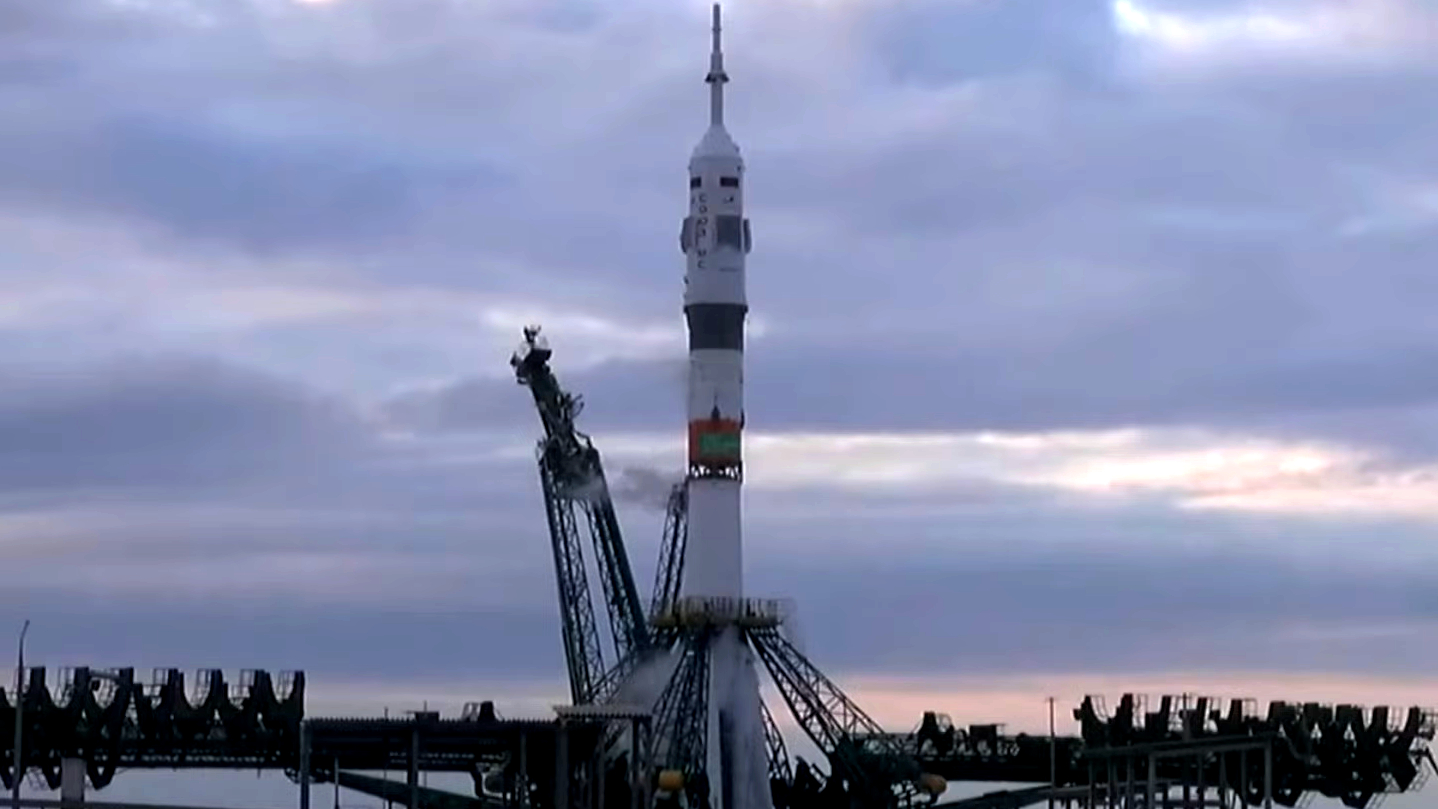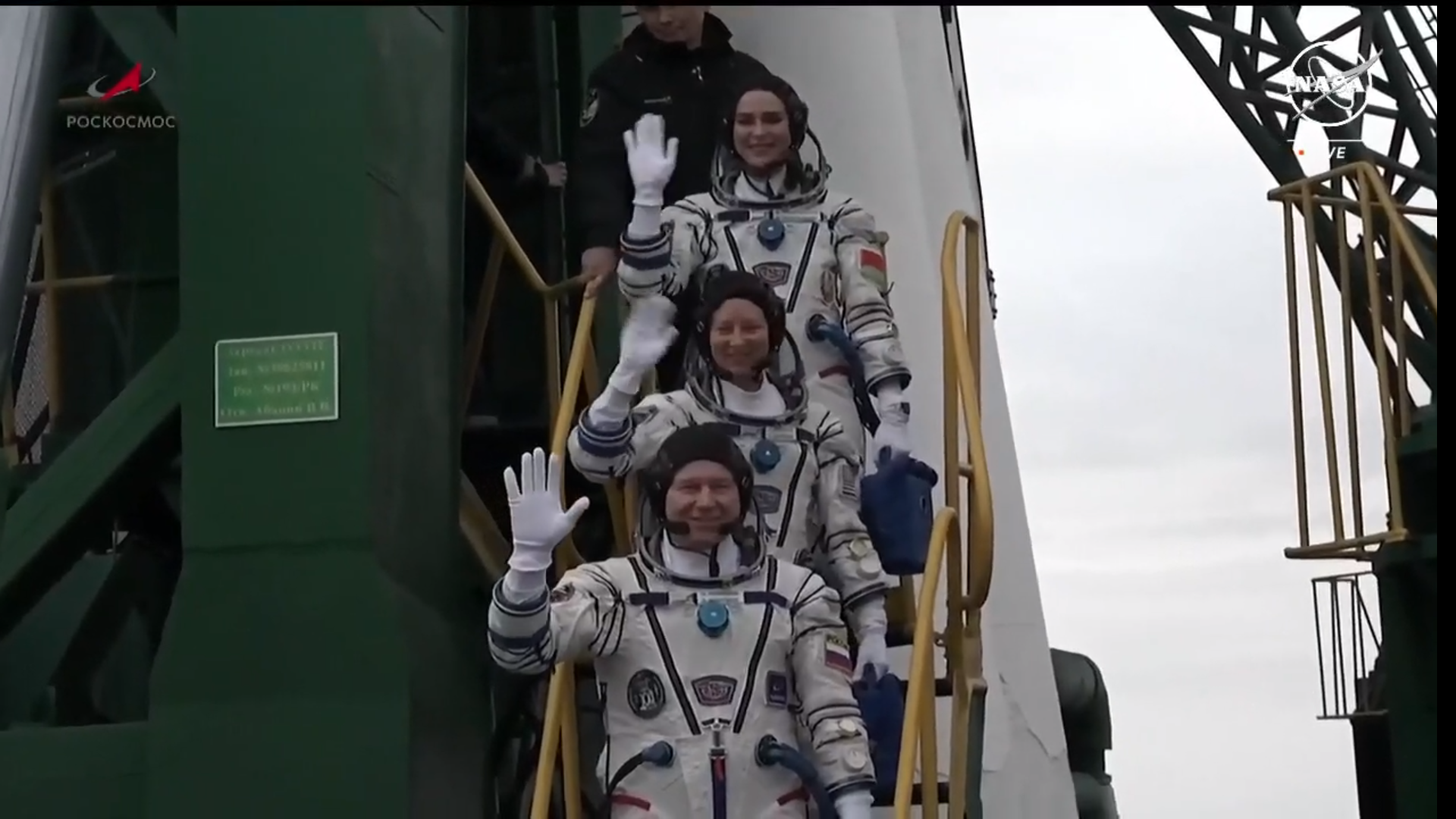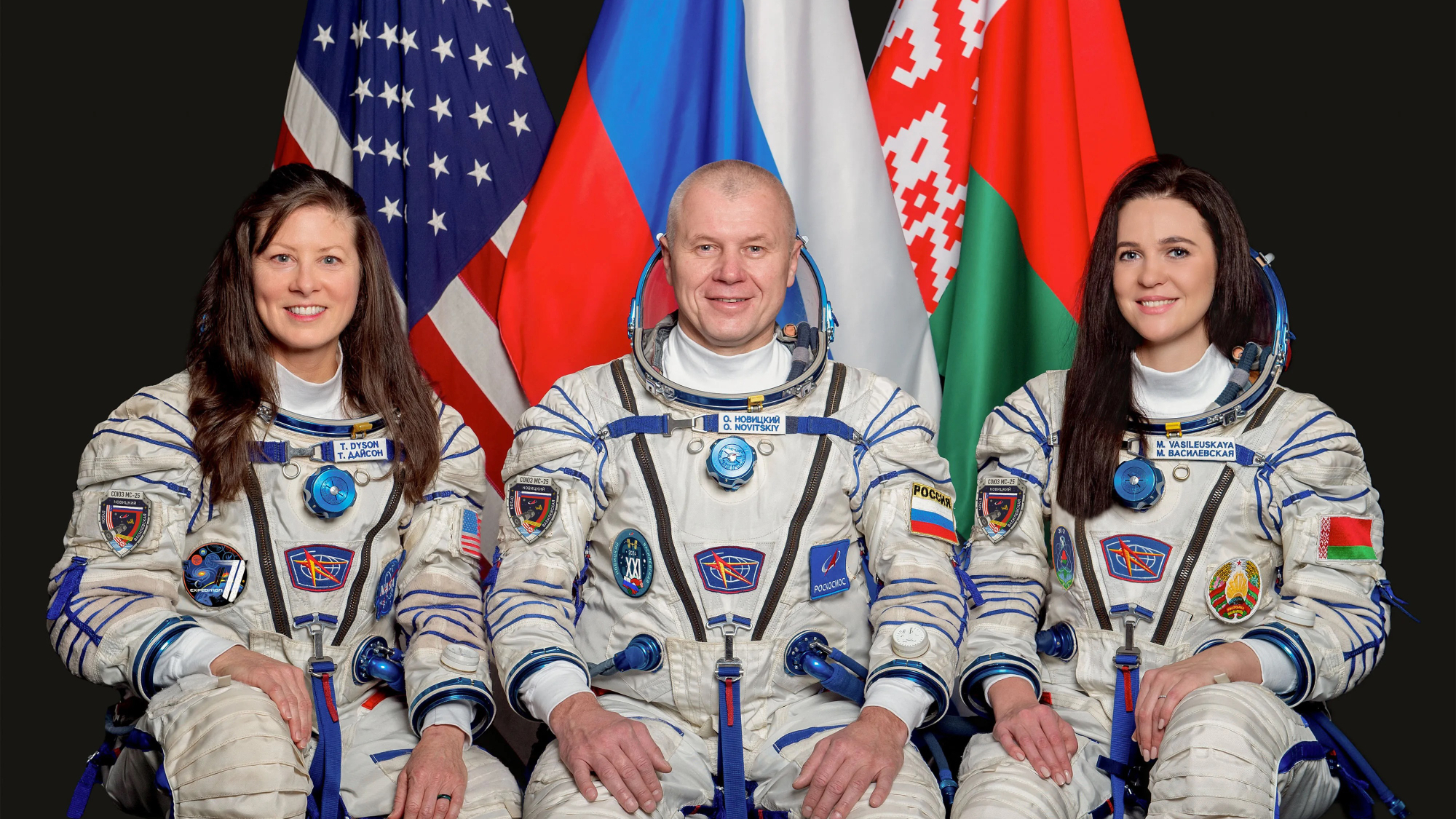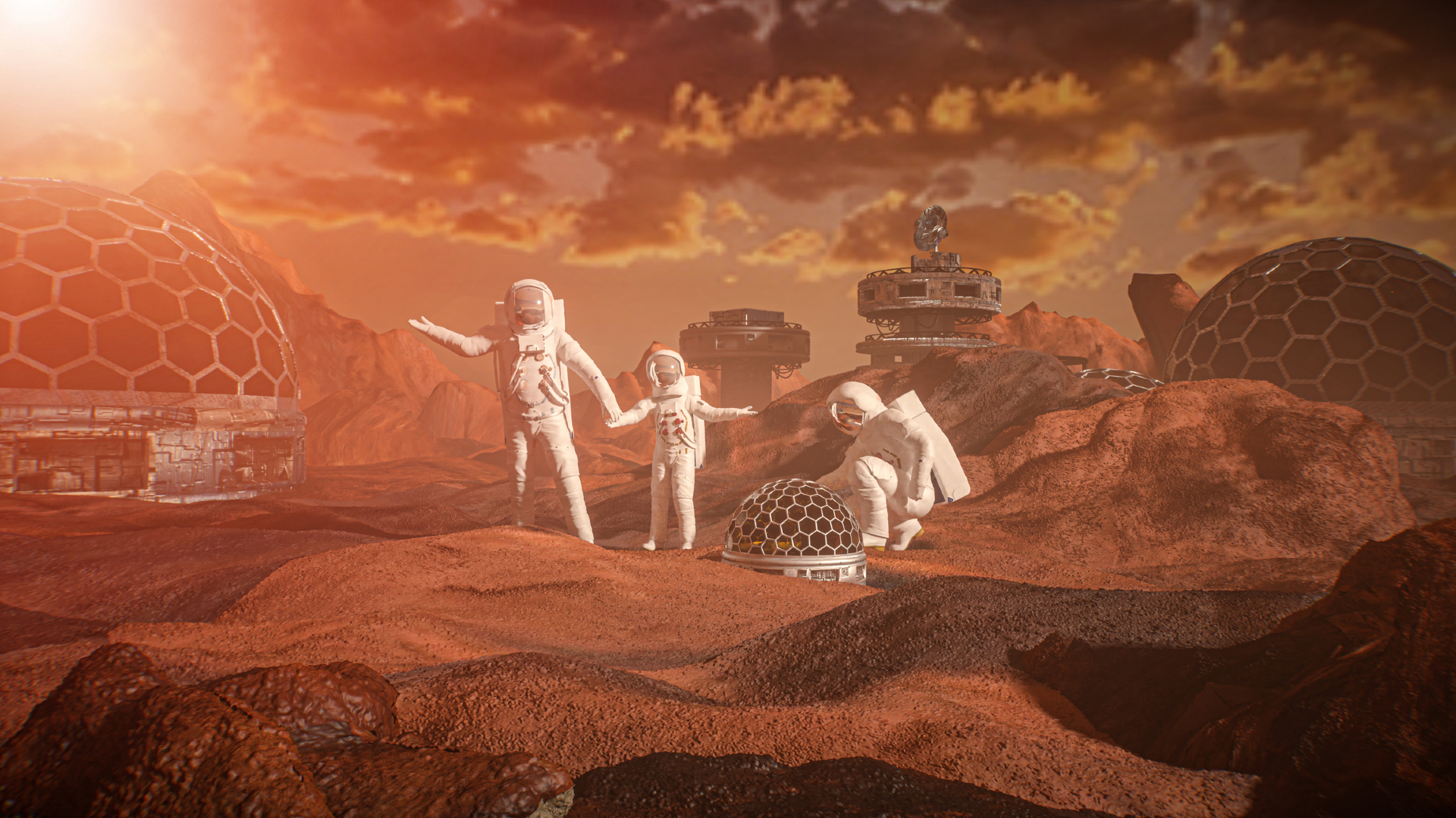Russian Soyuz rocket suffers rare last-minute abort during launch of 3 astronauts to ISS (video)
The abort occurred just 21 seconds before liftoff.
Breaking space news, the latest updates on rocket launches, skywatching events and more!
You are now subscribed
Your newsletter sign-up was successful
Want to add more newsletters?

Delivered daily
Daily Newsletter
Breaking space news, the latest updates on rocket launches, skywatching events and more!

Once a month
Watch This Space
Sign up to our monthly entertainment newsletter to keep up with all our coverage of the latest sci-fi and space movies, tv shows, games and books.

Once a week
Night Sky This Week
Discover this week's must-see night sky events, moon phases, and stunning astrophotos. Sign up for our skywatching newsletter and explore the universe with us!

Twice a month
Strange New Words
Space.com's Sci-Fi Reader's Club. Read a sci-fi short story every month and join a virtual community of fellow science fiction fans!
Update for 1 p.m. ET: The abort of today's Soyuz launch may have been due to a dead battery. "The reason has been identified, we just discovered at a meeting of the state commission that the reason was a voltage drop in the chemical current source," Roscosmos General Director Yuri Borisov said in a statement posted to the Russian space agency's Telegram account today.
A Russian Soyuz rocket carrying three astronauts bound for the International Space Station experienced a rare abort on the launch pad on Thursday (March 21) while the crew waited expectantly inside their spacecraft.
The abort occurred just 21 seconds before the Soyuz rocket was to launch NASA astronaut Tracy Caldwell Dyson, Russian cosmonaut Oleg Novitskiy and spaceflight participant Marina Vasilevskaya of Belarus to the International Space Station (ISS) from Baikonur Cosmodrome in Kazakhstan. Liftoff was scheduled for 9:21 a.m. EDT (1321 GMT).
"The Soyuz launch to the space station has been aborted," NASA spokesperson Rob Navias said during live commentary. "So, no visitors to the International Space Station today. The next opportunity to launch, pending resolution of what happened today, would be Saturday morning," he added.
Related: International Space Station — Everything you need to know
Navias said the abort was triggered by an automatic system shortly before engine ignition; two umbilical connections were retracted away from the rocket ahead of the planned launch. Roscosmos, Russia's space agency, sent engineers to the launch pad shortly after the abort to make sure the vehicle was safe and crew could be extracted.
"The vehicle is safe, all fueling operations have ceased," Navias said. "All safety commands have been provided onboard the rocket so there's no danger to the crew. They're perfectly safe."
NASA's Mission Control center radioed news of the launch abort to astronauts aboard the ISS shortly after it occurred. Flight controllers made it clear the Soyuz crew was safe.
Breaking space news, the latest updates on rocket launches, skywatching events and more!
"Station copies; aborted," station commander Andreas Mogensen of the European Space Agency replied. "Most importantly, Station copies crew are safe."
Russia's Soyuz rockets and crewed Soyuz spacecraft are workhorse transport vehicles that regularly fly cosmonauts and astronauts to and from the ISS. Roscosmos has used the spacecraft for crewed flights throughout the 24-year history of the ISS, as well as during its previous Mir space station program.
An abort just before launch is exceedingly rare for Soyuz rockets. In October 2018, a Soyuz rocket carrying NASA astronaut Nick Hague and cosmonaut Alexey Ovchinin suffered an in-flight abort that forced the crew's Soyuz capsule to rip free from its rocket and make a harrowing emergency landing. That abort was traced to a deformed sensor on the Soyuz rocket.
Dyson, Novitskiy and Vasilevskaya are set to launch on a mission to join the ongoing crew on the International Space Station. Dyson and Novitskiy plan to spend six months aboard the space station as part of its Expedition 71 crew, while Vasilevskaya is set to embark on a 12-day stay and return home with the outgoing Expedition 70 crew.
Exactly when the three space travelers will launch, however, is unclear. While Roscosmos has said the next window to launch the trio will open on Saturday, engineers with Soyuz rocket maker Energia will have to understand why today's Soyuz launch aborted and perform any fixes that may be required. NASA has pledged to share updates as they are received from Roscosmos and Energia.
Meanwhile, in Florida, another rocket is counting down to launch to the ISS today.
An uncrewed SpaceX Falcon 9 rocket and Dragon cargo ship are scheduled to launch more than 2 tons of fresh supplies to the ISS from Space Launch Complex 40 at the Cape Canaveral Space Force Station in Florida. Liftoff for that mission is scheduled for 4:55 p.m. EDT (2055 GMT) and should continue as planned, Navias said.
"The preliminary word is that the Falcon 9 launch of the CRS-30 resupply mission to the station will likely proceed as planned today," he added.
NASA and SpaceX will provide a livestream of the CRS-30 cargo launch, beginning at 4:35 p.m. EDT (2035 GMT).

Tariq is the award-winning Editor-in-Chief of Space.com and joined the team in 2001. He covers human spaceflight, as well as skywatching and entertainment. He became Space.com's Editor-in-Chief in 2019. Before joining Space.com, Tariq was a staff reporter for The Los Angeles Times covering education and city beats in La Habra, Fullerton and Huntington Beach. He's a recipient of the 2022 Harry Kolcum Award for excellence in space reporting and the 2025 Space Pioneer Award from the National Space Society. He is an Eagle Scout and Space Camp alum with journalism degrees from the USC and NYU. You can find Tariq at Space.com and as the co-host to the This Week In Space podcast on the TWiT network. To see his latest project, you can follow Tariq on Twitter @tariqjmalik.



